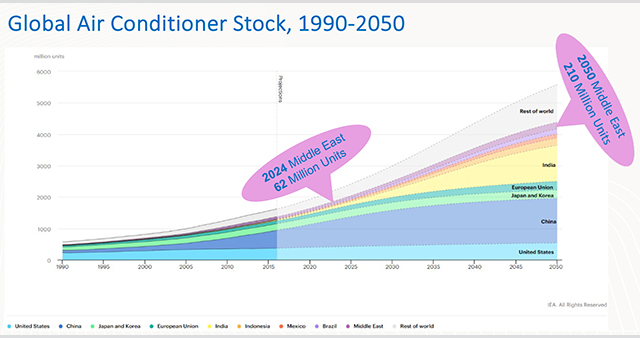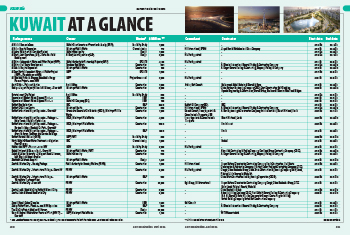
 Jordan ... key aspects of resolving disputes using Expert Determination.
Jordan ... key aspects of resolving disputes using Expert Determination.
STUART JORDAN* discusses Expert Determination as a procedure to resolve construction disputes, outlining its advantages while highlighting the need to understand its limitations.
In our constant search for better ways to resolve construction disputes, there is one procedure which has had little impact in the Gulf: that is Expert Determination. Let’s look at whether our industry might benefit from it.
First, we need to consider what advantages are brought by Expert Determination, which are not brought by the myriad of other disputes resolution processes.
As usual, there is no set definition but the generally-accepted idea is: Expert Determination is a process in which a dispute is referred to be decided by a chosen or appointed expert, or a panel of experts. The usual position is that the decision is binding (and therefore enforceable) but this is not a necessary feature.
This broad definition leaves out a lot of detail – the first one being: what kind of expert? For instance, if it is a legal expert (or a panel of them), this definition describes litigation and judges! The idea of course is to engage technical experts in the expectation that they will be better at understanding and deciding technical issues.
There is also no accepted definition of “expert” for these purposes. Some believe that it should be limited to “Expert Witnesses”, that is, people who are qualified to give “expert evidence” to a court or arbitration, due to their particular knowledge or skills in a subject area which is relevant to the dispute before the tribunal.
In many jurisdictions, there are strict rules around ‘Experts’ – not only their qualifications but also their duties to the court in relation to the evidence they give. Whilst contracting parties are free to set up their Expert Determination procedure with this as a condition of appointing the expert(s), there is no obligation to do that.
So why would contracting parties choose to resolve their disputes by Expert Determination? The main advantages are:
• Most importantly, the ability to choose experts who will understand the technical issues which are likely to arise in the operation of the contract. Choosing a single expert might work in highly specialist contracts (for instance, the World Intellectual Property Organisation promotes this process), it might not be useful in our industry. For us, the issues could cover engineering, build quality, scheduling (delay analysis) or quantum: valuation of works or of variation orders. Because of the range of possible technical areas of dispute, parties might provide in their contracts for a panel of experts – and for just the relevant panel members to be appointed, depending on the issues arising;
• The process is confidential – there is no rule requiring publication of the submissions or the decision. The parties can agree that everything is subject to non-disclosure save in relation to enforcement;
• It is binding, at least that is the usual position, and again unless the parties don’t want it to be. And it can also be final, that is, once decided the same issue may not be referred by either party to court or arbitration. Some parties and advisors take a strong view against “final and binding” Expert Determination because of the inherent danger in technical experts deciding disputes that may not lie wholly in their field of expertise. Binding decisions (final or not) are intended to be enforceable summarily. Such decisions are recognised and enforced in this way in some jurisdictions but we must acknowledge that local courts in the Gulf region may be inclined to open up and re-examine the dispute;
• It offers a quick and focused procedure. Again, this depends on what the parties want, but if contracting parties are prepared to give real thought to efficient disposition of disputes, they have the opportunity to draft something which suits them, their resources and the issues they most expect to arise. Equally, we should be wary of the temptation to “remove all the legal niceties” present in arbitration or litigation. Whilst this can make the process very short and cheap, it can become a lottery if there is no real presentation and examination of the full case from both parties;
• It is flexible. An Expert Determination process can provide, for instance, that the experts can give either binding or advisory decisions as required (in the same way as a Dispute Adjudication Board can be constituted) or decide only the narrow technical issues but not wider questions of entitlement or liability – effectively giving agreed early expert evidence. Its purpose would be to help the parties to settle the wider dispute or, if not, to assist a later arbitrator or judge to decide it.
Of course, any disputes process devised between contracting parties – most commonly arbitration and adjudication – is flexible to their needs and can be shaped to bring efficient resolution. We have long seen the value of arbitrators who are technical experts, and arbitrator panels can be assembled to cover various types of technical issue as well as containing lawyers.
So, if all contract-based processes are flexible, what are the unique aspects of Expert Determination? If we take the process as it is generally understood, Expert Determination is not usually considered a quasi-judicial process, that is, it is not designed to evaluate any dispute in the context of all the known facts, to interpret the contract, apply the law and come up with a decision on entitlement or liability, although it can be set up that way. Quite separately – and entirely within the usual understanding of Expert Determination – the parties are free to choose legal experts to decide specific legal issues.
Regardless of the label attached to any disputes process, parties need to understand the limitations of short and informal processes, and to provide for the appointment of experts in fields too narrow to deal with the potential issues arising – which might include legal entitlement and liability.
* Stuart Jordan is a partner in the Global Projects group of Baker Botts, a leading international law firm. Jordan’s practice focuses on the oil, gas, power, transport, petrochemical, nuclear and construction industries. He has extensive experience in the Middle East, Russia and the UK.





















_0001.jpg)


.jpg)
















.jpg)








.jpg)


